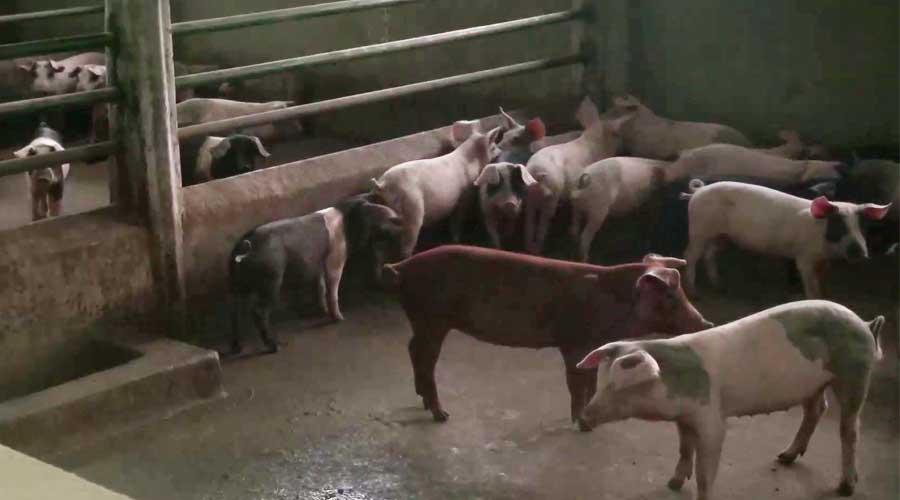
Piggery farms in Tsirang have been struggling with marketing challenges for quite some time now. With the demand gone down drastically, the farmers said they have been fetching an all-time low price for local pork.
Wangchuk Chuwan, a former tour operator returned home after the pandemic disrupted his tourism business. Back at his home, he saw a new way to earn his living by setting up a mega piggery farm in Tsirang.
Today, his farm has around 100 pigs. But with no market, his business has been at a halt.
“Now it is the opposite. There is no market at all. We are not able to sell whatever we produce. Moreover, when we are not able to sell, we are not able to pay back loans and buy animal feed,” said Wangchuk Chuwan.
And the story is no different for other piggery farmers. The district currently has over 400 piggery farms. A kilogram of pork used to cost around Nu 500-550 about a year ago. But today it has fallen below Nu 280 per kilogram.
“We have enough pigs ready for meat production but we are not able to sell them off. If the government could help us improve the market accessibility, we would be able to upscale pork production which would help achieve meat self-sufficiency,” said Nar Bdr. Rai, a piggery farmer.
“I feel that it is important for the government to conduct proper research on pork production in the country. Looking at the production in the country, the government should import pork only if the country cannot meet the country’s demand. This would help solve pork marketing issues,” said Tak Bdr. Saru.
The piggery farmers in the district suspect there is still an inflow of pork from India amid the temporary ban. Following an outbreak of African Swine Fever in neighbouring Indian states, the government banned the import of pork in July this year.
“I went to meat shops in Thimphu and questioned them and they said they have still stock down in Phuentshogling in the chiller house. They said, more than 150 tons have been stocked there. But it is almost two months now and still they have stock. It is very difficult to understand whether they are importing or they have in the stock. This could be the main reason we cannot sell our pork,” said Wangchuk.
And while the demand for local pork has fallen, it’s the loan repayment and rising feed prices that have added to their worries.
“We are already dragged to the court by feed agents and also we have to pay loans on time. Last time, the district court called me and we arranged to make feed payments in instalments. When there is no market for eggs and pork, even feed agents have stopped giving feed on credit,” said Passang Dorji Tamang.
Meanwhile, livestock officials said that one of the reasons for the low price could be the overall increase in pork production across the country after the pandemic. And the other reason is piggery farmers not following a uniform farm gate price set by the Department of Livestock thereby leading to price variations
The officials added that the Bhutan Agriculture and Food Regulatory Authority in collaboration with the Integrated Checkpost Authority are keeping close vigilance on illegal imports across the porous border. So far, there have been no recorded cases of illegal imports.
Pema Tshewang, Tsirang
Edited by Sonam Pem








